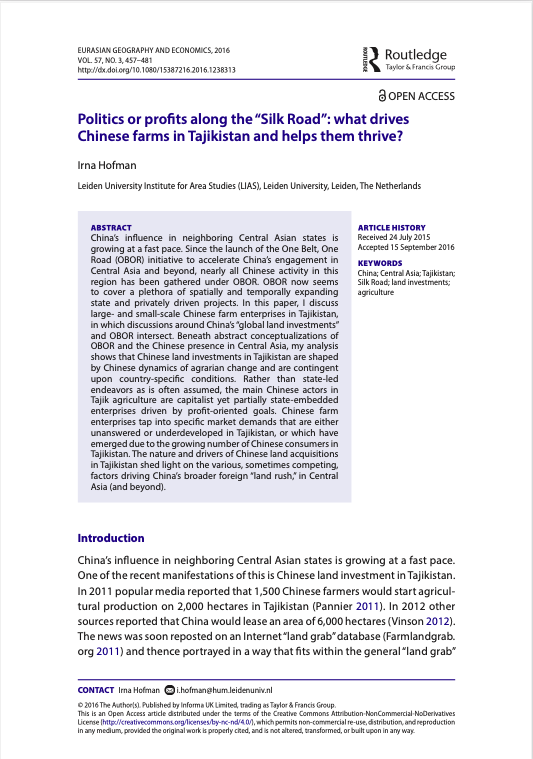Resource information
China’s influence in neighboring Central Asian states is growing at a fast pace. Since the launch of the One Belt, One Road (OBOR) initiative to accelerate China’s engagement in Central Asia and beyond, nearly all Chinese activity in this region has been gathered under OBOR. OBOR now seems to cover a plethora of spatially and temporally expanding state and privately driven projects. In this paper, I discuss large- and small-scale Chinese farm enterprises in Tajikistan, in which discussions around China’s “global land investments” and OBOR intersect. Beneath abstract conceptualizations of OBOR and the Chinese presence in Central Asia, my analysis shows that Chinese land investments in Tajikistan are shaped by Chinese dynamics of agrarian change and are contingent upon country-specific conditions. Rather than state-led endeavors as is often assumed, the main Chinese actors in Tajik agriculture are capitalist yet partially state-embedded enterprises driven by profit-oriented goals. Chinese farm enterprises tap into specific market demands that are either unanswered or underdeveloped in Tajikistan, or which have emerged due to the growing number of Chinese consumers in Tajikistan. The nature and drivers of Chinese land acquisitions in Tajikistan shed light on the various, sometimes competing, factors driving China’s broader foreign “land rush,” in Central Asia (and beyond).


